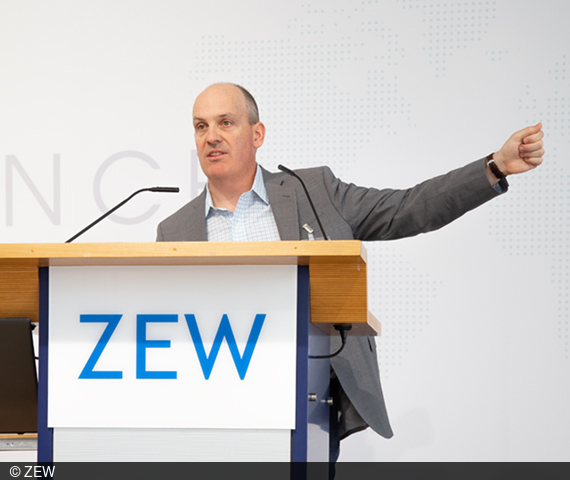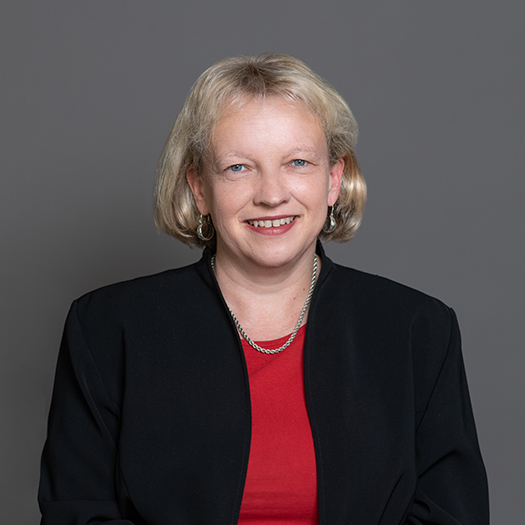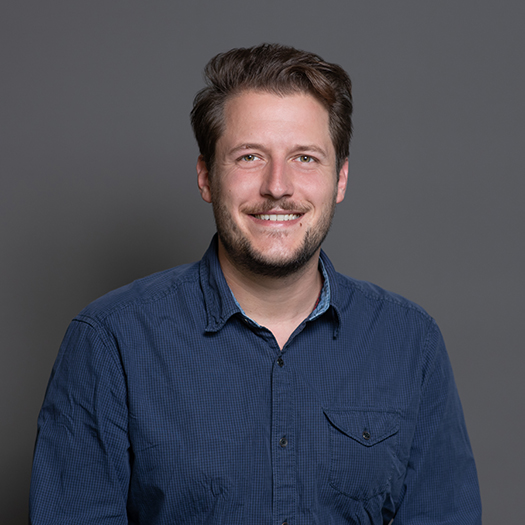2019 Innovation Conference on Artificial Intelligence and Patent Law
ConferencesHow can Artificial Intelligence (AI) be measured? What possibilities are there to prosecute patent infringements? How can the transfer of knowledge between science and industry be improved? These were some of the questions discussed at the eighth ZEW/MaCCI Conference on the Economics of Innovation and Patenting. The internationally renowned conference was jointly organised by ZEW and the Mannheim Centre for Competition and Innovation (MaCCI) on 16 and 17 May 2019.
Over the course of 22 parallel sessions, two keynote speeches and two invited sessions, over 100 international researchers came together at this year’s ZEW/MaCCI Conference to discuss current research topics concerning innovation and patent law. The conference’s excellent reputation within the world of economics was reflected in the over 140 research papers submitted, 62 of which were chosen to be presented at the conference. The highlights of the conference included the keynotes by Professor Dietmar Harhoff, director of the Max Planck Institute for Innovation and Competition in Munich, and Timothy Simcoe, associate professor of Strategy & Innovation at the Questrom School of Business at Boston University, US.
Recent developments in the measurement of artificial intelligence
In his keynote, Dietmar Harhoff shed light on the challenges of measuring Artificial Intelligence and gave an outline of its development over the past few decades. He highlighted the lack of a common definition of AI and stressed that the development of new indicators would require careful attention in light of the high relevance of AI in the current political debate. He also analysed the attractiveness of the German science system for researchers who focus on Artificial Intelligence. According to Harhoff, in particular Scandinavian countries and Switzerland are much better equipped than Germany to recruit new scientists.
Effects of patent infringements and lawsuits on innovation incentives
In his keynote speech, US economist Timothy Simcoe considered the legal remedies of companies whose patent rights had been infringed. Amongst other things, his speech centred on the legal dispute between eBay and MercExchange in 2006, which led to a sea change in the US patent system. After the dispute, the presumption of injunctive relief was removed. Instead, courts decide on a case-to-case basis whether injunctions or damages should be granted to these companies. While many have since argued that this practice reduces incentives for companies to invest in research and development, Simcoe showed that these changes in patent law have, in fact, not led to a decline in overall innovation activity in the US.
Conference offered broad spectrum of topics on innovation research
In addition to the keynotes, the conference covered a broad range of topics. In the first invited session, Professor Elisabetta Iossa from the University of Rome Tor Vergata in Italy, and ZEW Research Associate Professor Dirk Czarnitzki from KU Leuven, Belgium, discussed the potential of public procurement as an instrument to promote innovation. In this context, Czarnitzki explained that the changes of the Procurement Law Amendment Act of 2009, which set the course for innovative public procurement, have indeed contributed to a higher innovation outcome. This effect has, however, only been observed for incremental and not for radical innovations. During the second invited session, Professor Julia Lane from New York University, US, and Juan Mateos-Garcia from UK Innovation Foundation NESTA, London, shed light on the role of machine learning and big data in innovation economics. The topics of the parallel sessions ranged from knowledge and technology transfer to incentives for innovation activities, the evaluation of innovation and research policy instruments and the detailed analysis of various patent systems.




